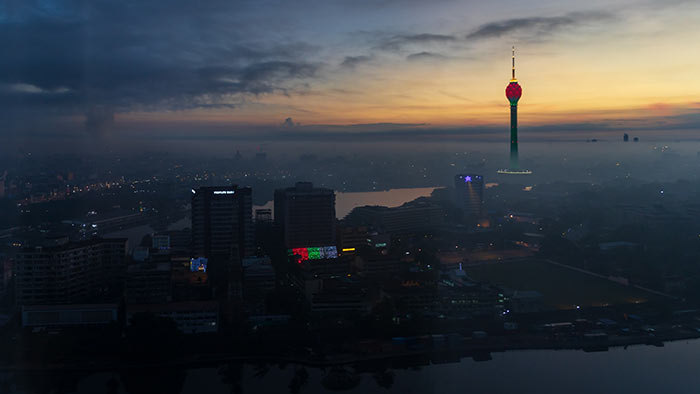Sri Lanka finalises oil exploration rules, earmarks 900 offshore blocks

Photo credits: unsplash
Sri Lanka is preparing to issue two-year oil and gas exploration licenses for as many as 900 offshore blocks for foreign firms to scout for energy resources and bring in vital investments to the crisis-hit country, a top official told Reuters on Thursday.
Starting up oil production is part of President Ranil Wickremesinghe’s plan to attract foreign investment as he seeks to stabilise the economy amid the country’s worst economic crisis in seven decades.
The new regulations were finalised by the government this week and set a framework for companies to sign an expression of interest (EOI) for exploring offshore assets around the country, Surath Ovitigama, director general of the state-run Petroleum Development Authority, told Reuters in a phone interview.
The rules for oil exploration will be made public this month and the government hopes to start issuing licences for some of the 900 blocks within weeks, he said.
“In the coming months we expect to recommence oil and gas exploration with the first set of credible entities. We believe this will boost investor confidence and serve to attract the next wave of EOIs this year,” Ovitigama told Reuters.
Previous attempts by Sri Lanka to start up oil production have mainly focused on the country’s northern coast but this time the government has mapped assets surrounding all sides of the island.
The Mannar Basin, which lies between southern India and northwestern Sri Lanka, may hold around $260 billion worth of oil and gas resources, Sri Lanka’s former energy minister told parliament in 2021.
Sri Lankan authorities hope that exploration work could start as early as March and any success in the initial exercise will lead to production sharing agreements for gas and oil, Ovitigama said.
Two companies have already expressed serious interest and requests for proposals (RFPs) will be issued shortly, leading to negotiations for exploration licenses, he said.
Ovitigama declined to name the companies since ongoing discussions were confidential.
However, a source with direct knowledge of talks said ONGC Videsh Limited (OVL), the overseas arm of India’s state-run oil explorer, is a front runner seeking to explore multiple blocks off Sri Lanka’s north and north-west shoreline.
“OVL is the company that has made the most efforts, appealed the most and has followed up with meetings. They have made representations at every level,” the source said, asking not to named because discussions were confidential.
An OVL spokesman did not immediately respond to an emailed request for comment.
As Sri Lanka closes in on a $2.9 billion loan deal from the International Monetary Fund and its economy starts to stabilise, India is seeking to land ambitious long-term investments worth over $1 billion, including in the energy sector, with an eye on countering the influence of regional rival China.
ONE MILLION BARRELS
Soaring global oil prices early last year worsened Sri Lanka’s financial crisis that was brought on by a severe foreign exchange shortage, leaving it with limited dollars to fund imports of fuel, food and medicine.
The shortages led to violent protests that forced then President Gotabaya Rajapaksa to flee the country in July.
Sri Lanka is currently completely dependent on imported fuel, which cost the cash-strapped country around $4.2 billion in 2022.
However, the government, based on seismic surveys, estimates that a 30,000 square kilometre area off the north coast of the country holds over one million barrels of oil resources.
Sri Lanka held its first international licensing round for petroleum exploration in 2007, with one exploration block awarded to an Indian firm that pulled out in 2015 when oil prices plunged.
In 2019, the country brought in French major Total (TTEF.PA) and Norway’s Equinor (EQNR.OL) to study the potential of two blocks for oil production.
(Reuters)
Latest Headlines in Sri Lanka
- Sri Lankan President orders swift livelihood restoration for disaster-hit communities December 13, 2025
- Sri Lanka receives over USD 7 Billion in remittances in 2025 December 13, 2025
- Sri Lanka Parliament summoned to meet on December 18 December 13, 2025
- Sri Lanka and Italy renew agreement on mutual recognition of driving licenses December 13, 2025
- Asoka Ranwala granted bail December 12, 2025


